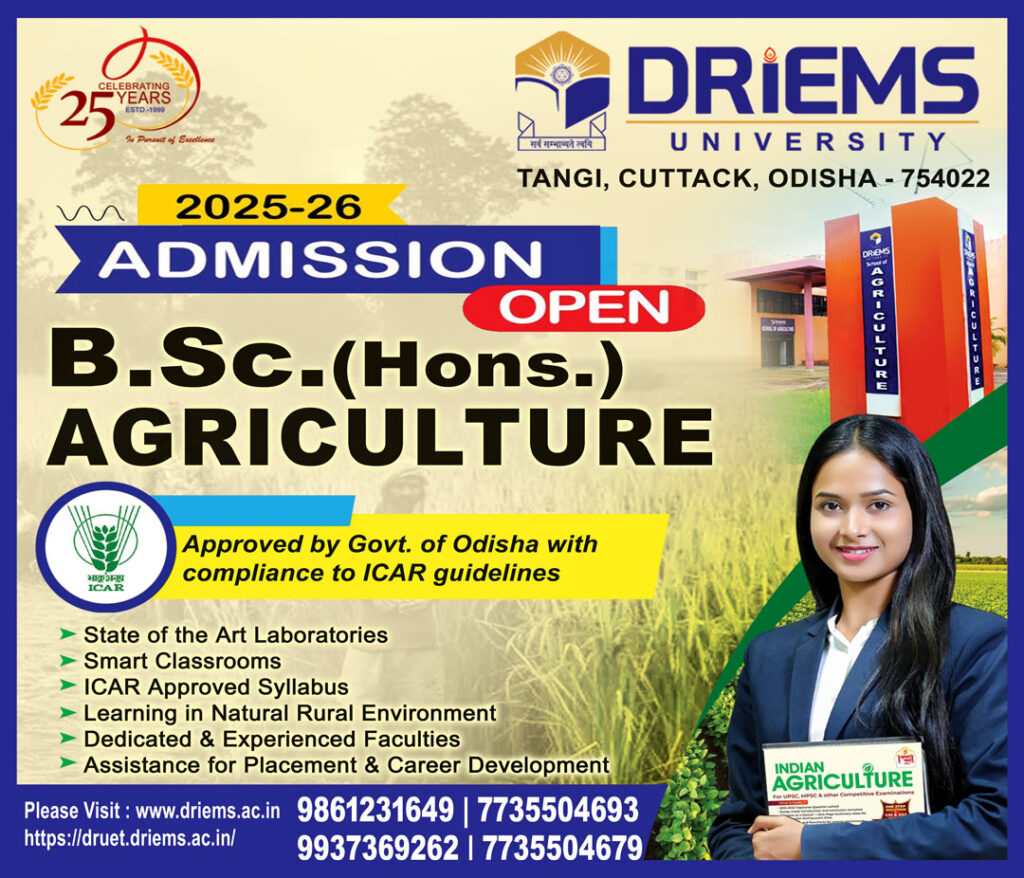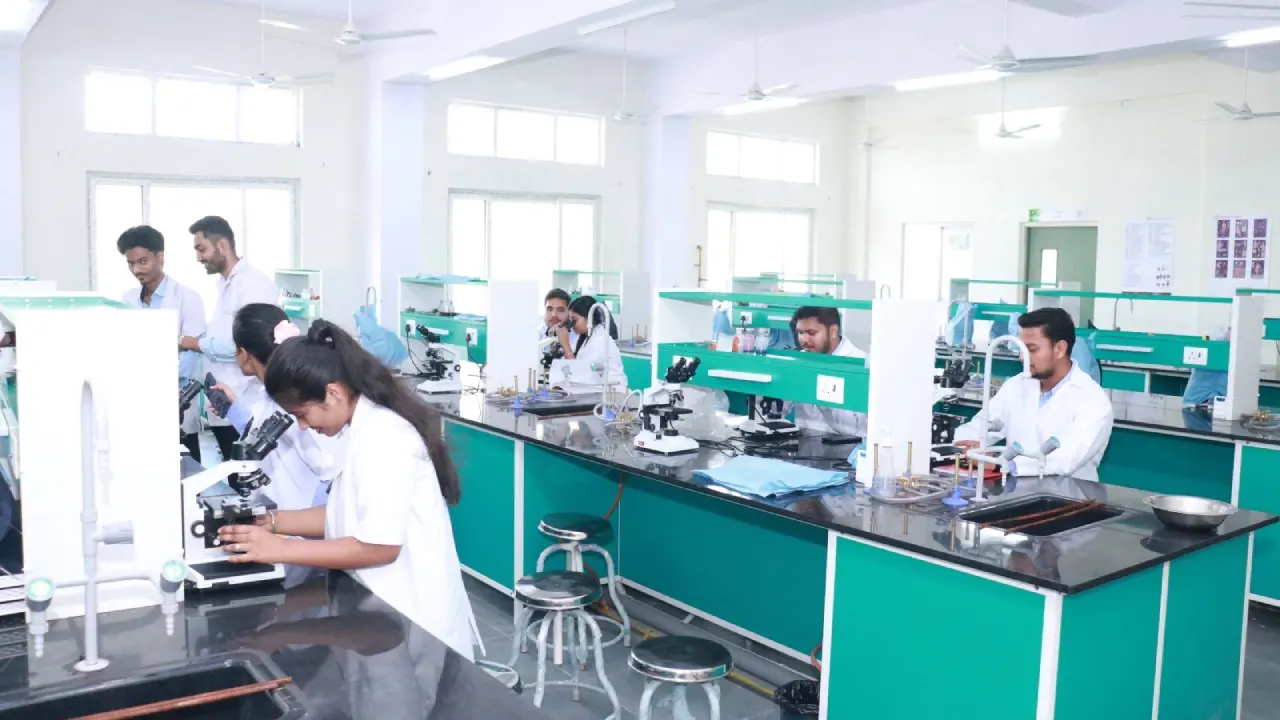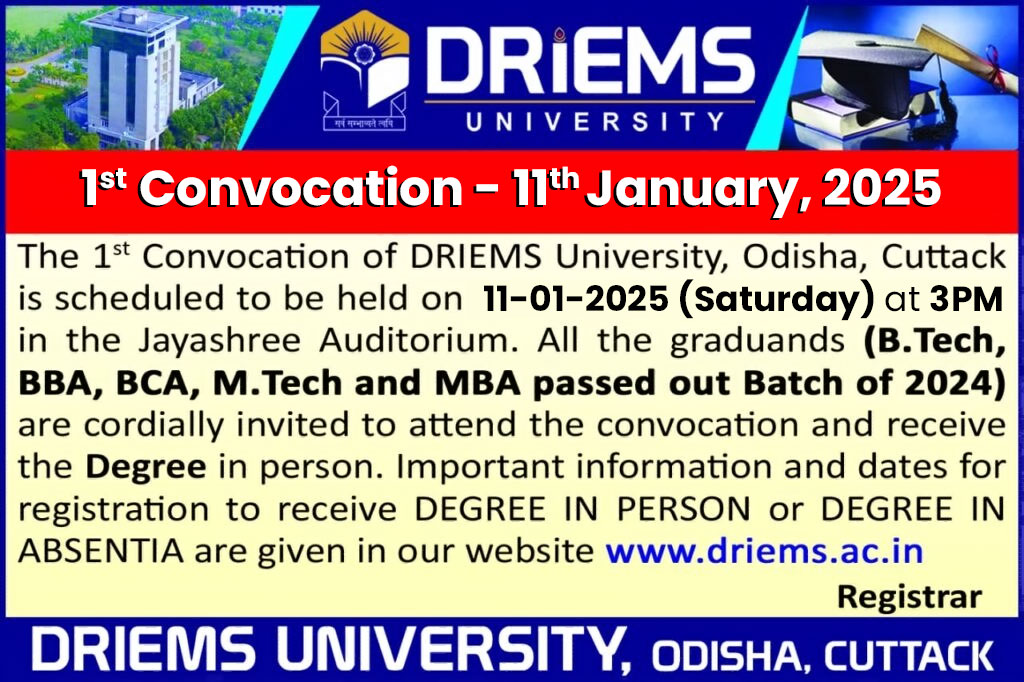





As Dean, I take pride in leading a team of dedicated faculty and staff who are committed to fostering a culture of excellence, compassion, and professionalism. As one of the first private institutions in Odisha to offer courses in Occupational Therapy, we are dedicated to shaping the future of healthcare professionals with a vision of excellence and innovation. Our objective is to empower young and curious minds with the knowledge and skills to excel in their roles as essential members of the healthcare community. Through various rigorous academic programs, hands-on training, and industry partnerships, we prepare students to meet the evolving needs of the healthcare sector and make a positive impact on the health and well-being of society.Let’s embark on this transcendent journey together, embracing endless opportunities for growth and excellence.
At our university, the School of Paramedical and Allied Sciences stands as a beacon of excellence, compassion, and professionalism in healthcare education. Led by a dedicated team of faculty and staff, we are committed to shaping the future of healthcare professionals with a vision of excellence and innovation. As one of the first private institutions in Odisha to offer courses in Occupational Therapy, we are at the forefront of advancing healthcare education in the region. Through rigorous academic programs, hands-on training, and industry partnerships, we prepare students to meet the evolving needs of the healthcare sector and make a positive impact on the health and well-being of society. Join us on this transcendent journey as we embrace endless opportunities for growth and excellence together.
◆ Dedicated to empowering students through innovative education and research to enhance the quality of life for individuals in need.
◆ M1:To develop and implement best practices in paramedical and allied sciences and Foster ongoing education and professional development.
◆ M2: Train students through a centric teaching and learning process to accomplish industrial research and social needs.
◆ M3: Enhance patient outcomes through accurate diagnosis, treatment, and rehabilitation.
⮞ Bachelor of Medical Laboratory Technology (BMLT)
⮞ Bachelor of Medical Radiation Technology (BMRT)
⮞ Bachelor of Anaesthesia Technology (BAT)
⮞ Bachelor of Operation Theatre Technology (BOTT)
⮞ Diploma in Medical Radiation Technology (DMRT)
⮞ Diploma in Medical Laboratory Technology (DMLT)
⮞ Master in Public Health (MPH)

DRIEMS, a Premier Technical Institute of India with the highest ‘A’ Grade by NAAC (under UGC) has grown from strength to strength since its inception in 1999.
© 2025 DRIEMS University | All Rights Reserved


You can see how this popup was set up in our step-by-step guide: https://wppopupmaker.com/guides/auto-opening-announcement-popups/